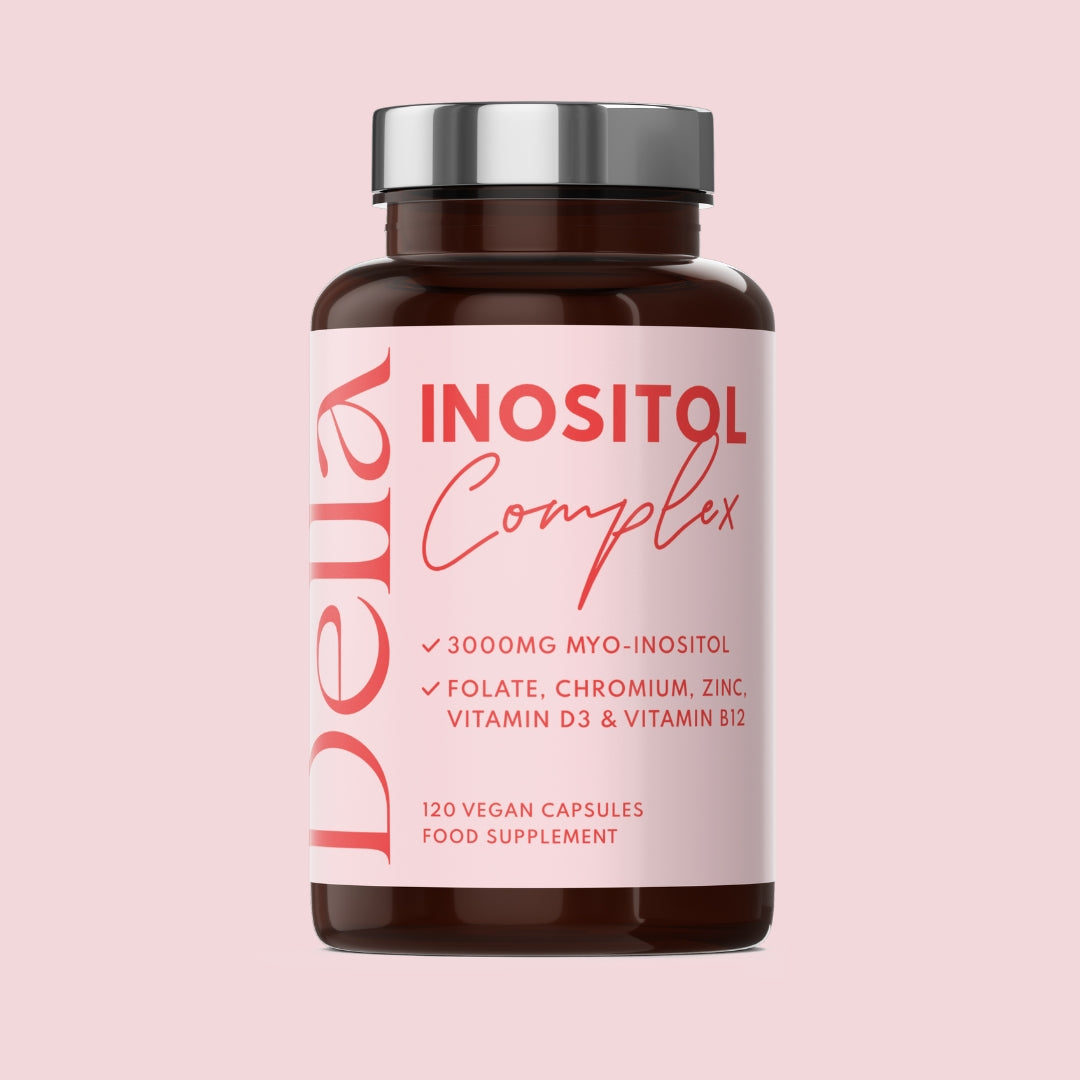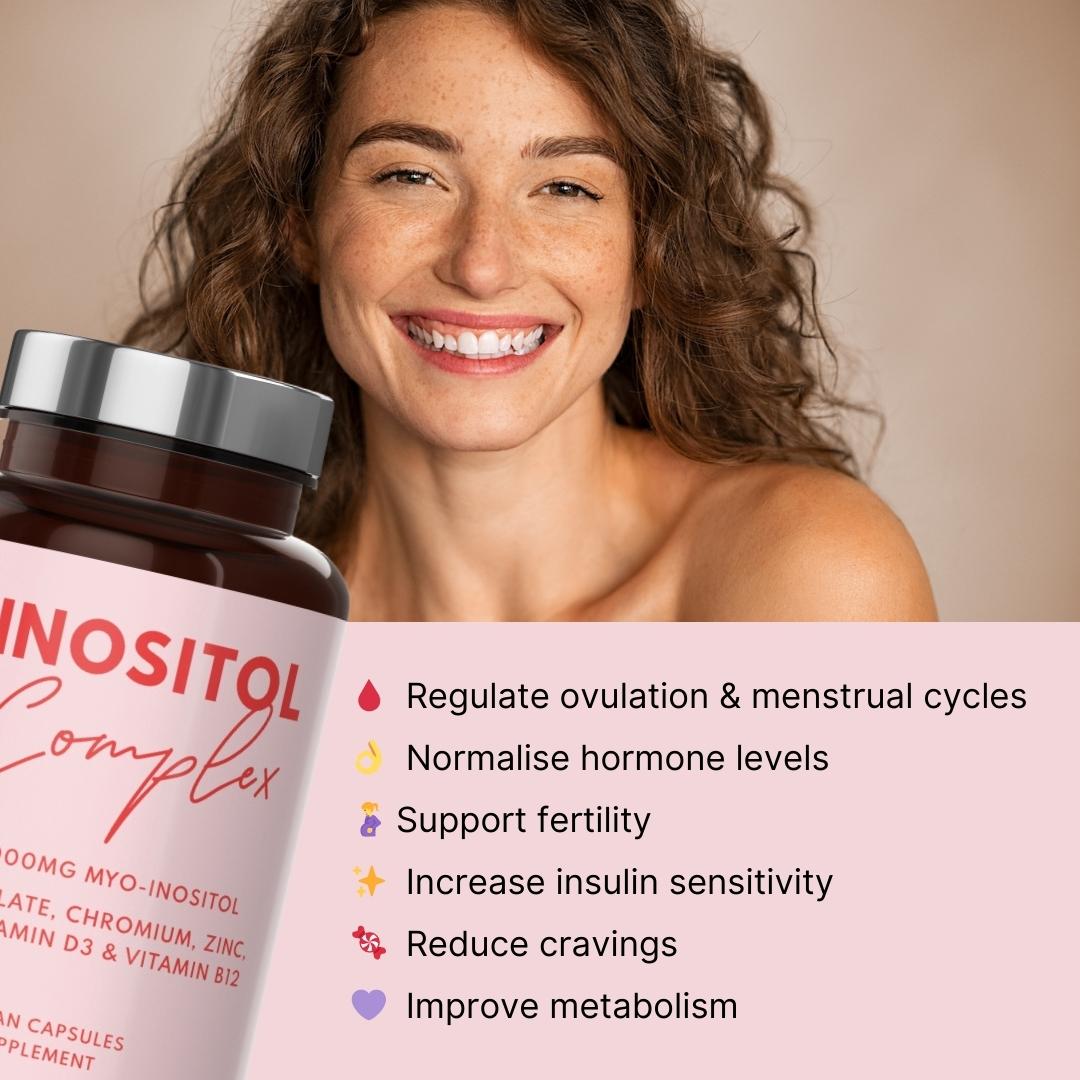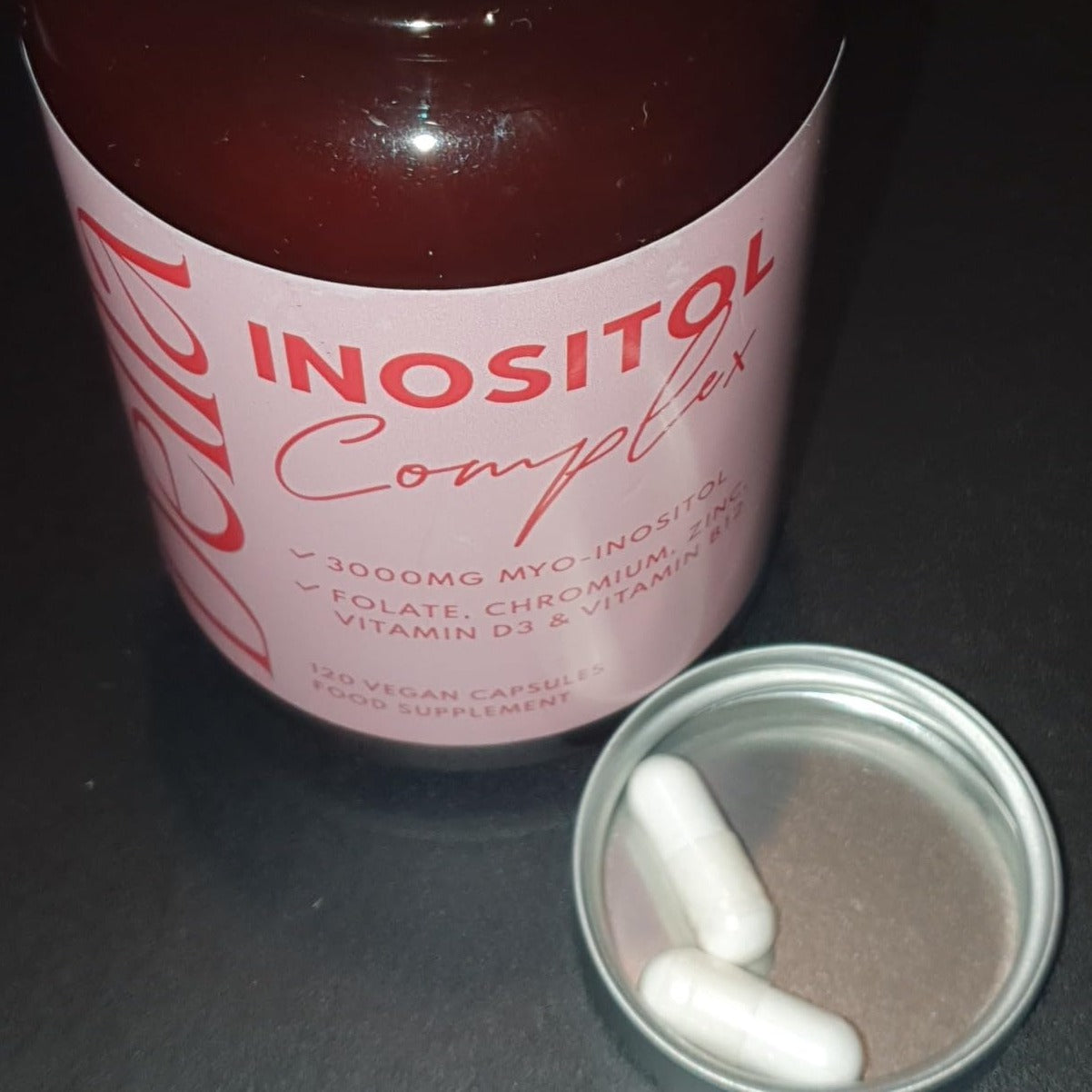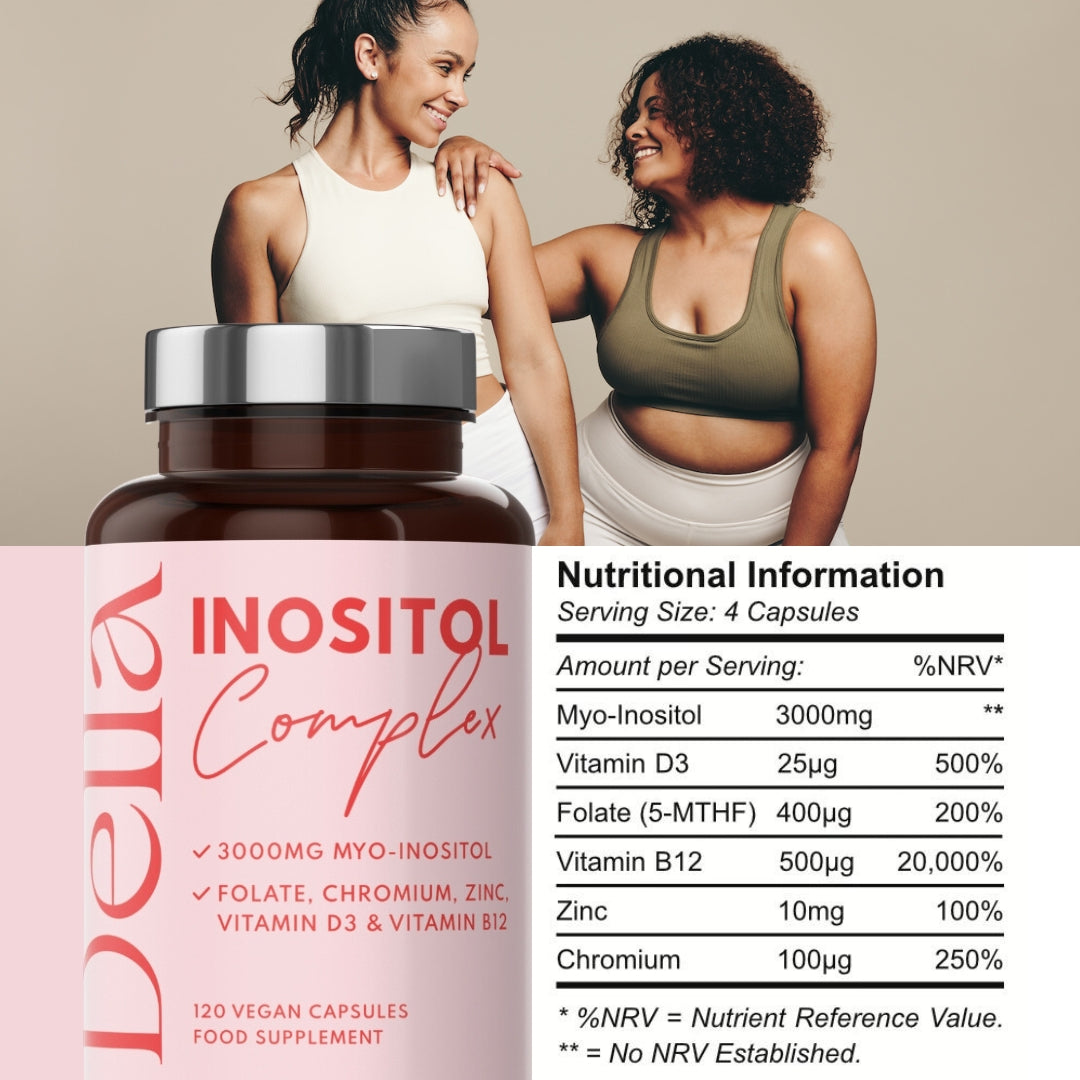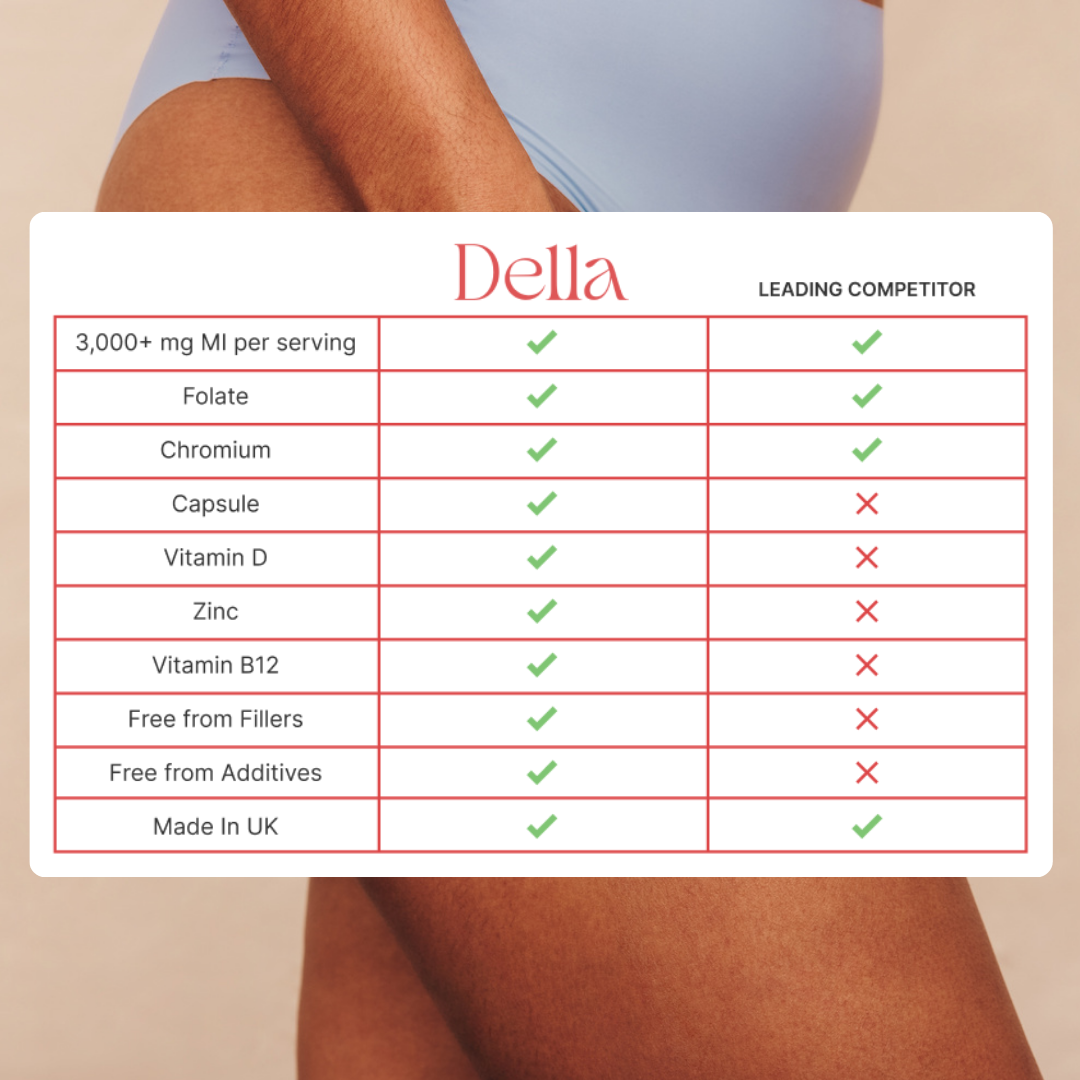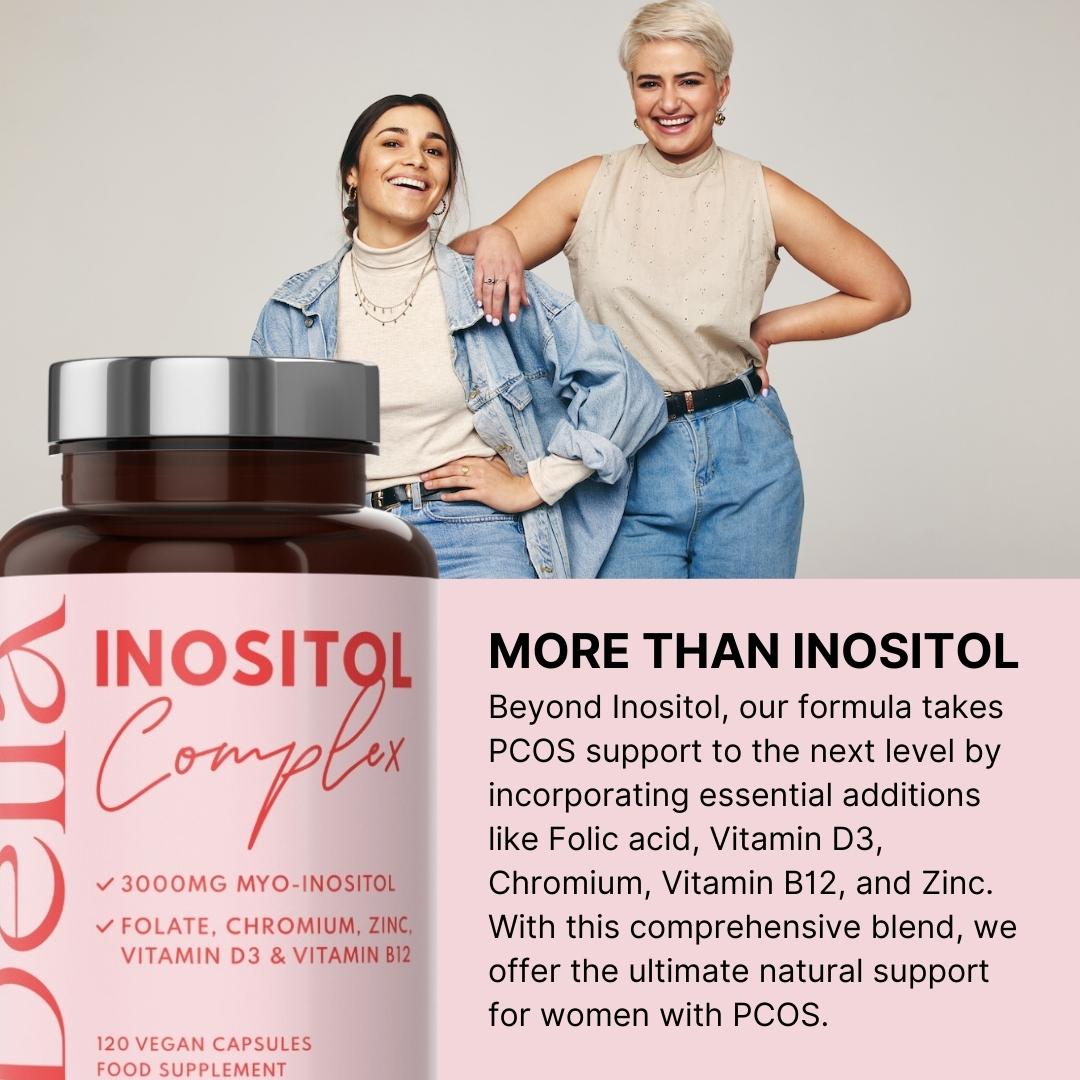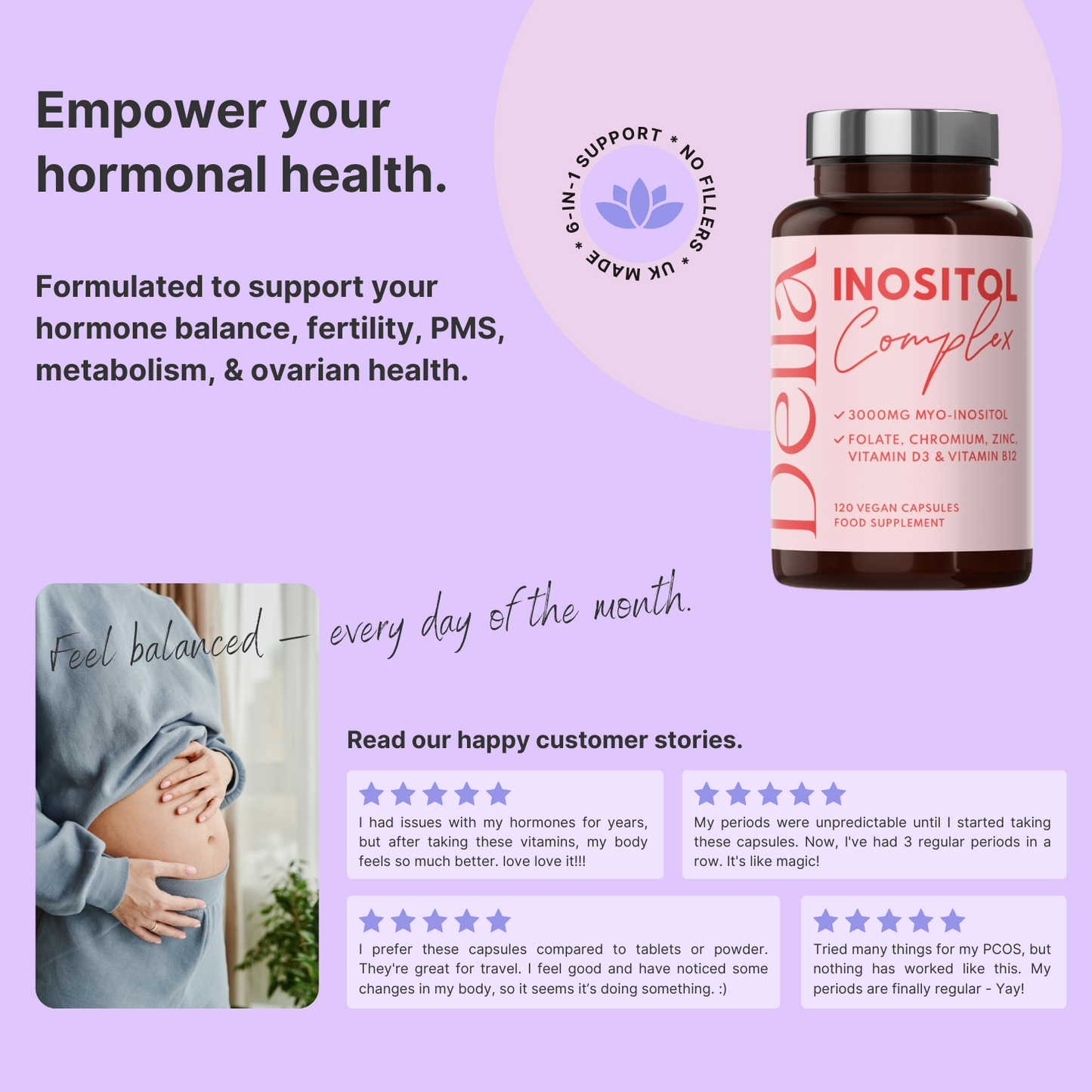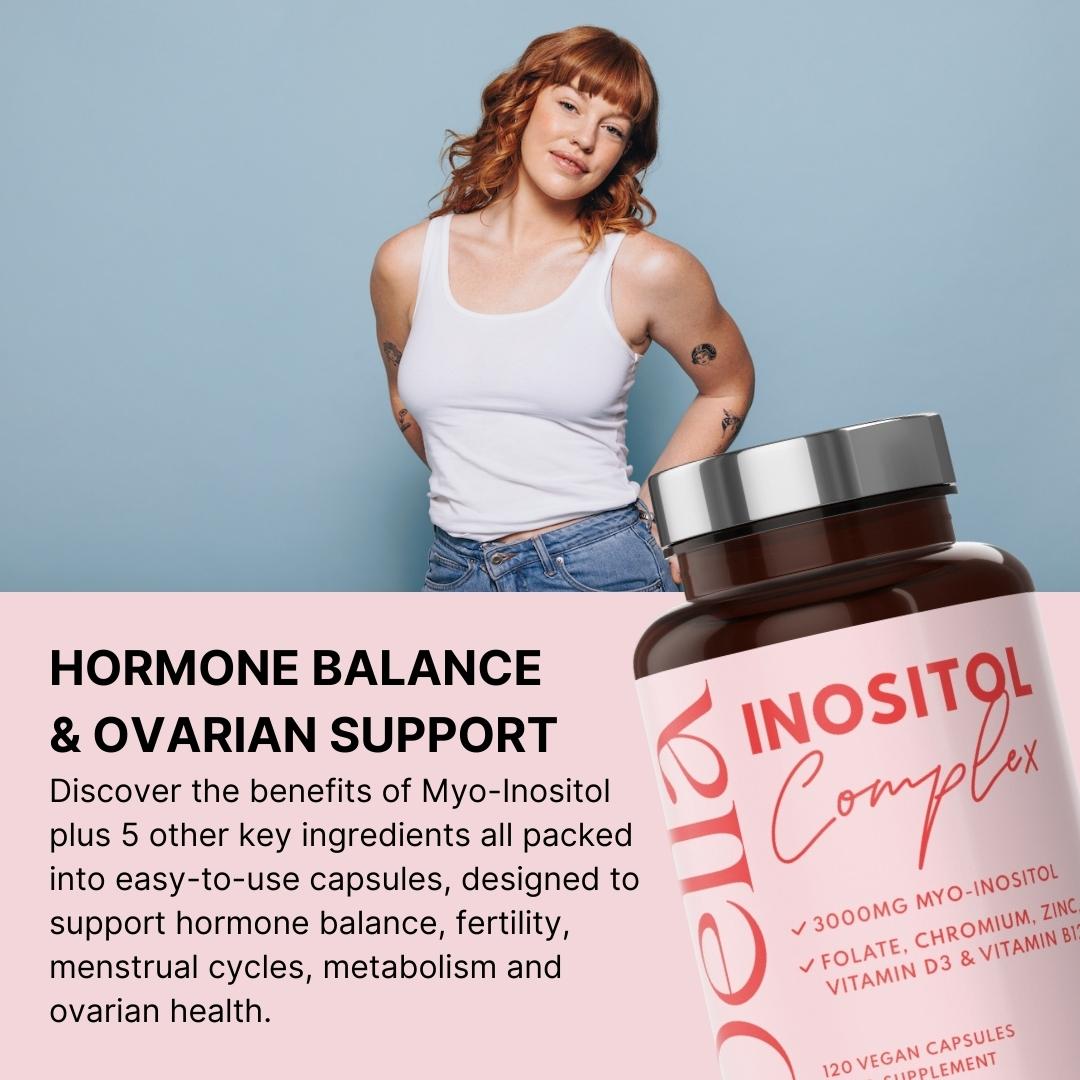If you’re also dealing with PCOS (polycystic ovary syndrome), you know how frustrating and challenging it can be to manage its symptoms, and how what you eat and drink can have a significant impact on them.
In this article we’re taking a closer look at alcohol, and how it can affect PCOS…

The Connection Between PCOS and Alcohol
To comprehend how alcohol affects PCOS, let's start with insulin. Those with PCOS often have higher-than-average levels of insulin due to insulin resistance. When your cells become less responsive to insulin, your blood sugar levels rise, prompting your body to produce more insulin to stabilise them.
Unfortunately, this excessive insulin production can cause your ovaries to produce additional androgen hormones, leading to many PCOS symptoms.
Alcohol consumption can significantly influence blood sugar levels, particularly when consumed alongside a diet high in refined carbohydrates. Components in alcoholic drinks, such as carbohydrates and resveratrol in red wine, have been associated with affecting insulin levels.
Moreover, alcohol is known to affect the menstrual cycle in general. Regular heavy drinking can lead to irregular or missed periods, disrupt hormonal fluctuations during ovulation, and temporarily increase oestrogen and testosterone levels.
Should I Avoid Alcohol Altogether if I Have PCOS?
In moderation, alcohol can be enjoyable and isn't necessarily off-limits for those with PCOS. If your doctor hasn't advised against it, the occasional glass of wine or beer is generally considered acceptable.
However, if you have PCOS, your healthcare provider may recommend cutting back on alcohol consumption to gain better control over your symptoms. If you are taking medications for PCOS, such as Metformin, it's essential to be cautious about alcohol intake as mixing alcohol and medications can have adverse effects.
Can Reducing or Cutting Out Alcohol Help PCOS Symptoms?
Absolutely! While PCOS is considered an incurable condition, lifestyle changes can have a positive impact on managing symptoms. Some accounts suggest that significant lifestyle overhauls have even led to reduced or resolved PCOS diagnosis.
Reducing alcohol intake can have several benefits for PCOS management:
- Blood Sugar Management: Since blood sugar plays a critical role in PCOS, controlling insulin resistance is essential. Alcohol, especially certain types like wine or beer, can exacerbate blood sugar fluctuations. If you do decide to drink, have alcohol alongside a low carb meal to stabilise blood sugar levels.
- Liver Health: People with PCOS are at risk of nonalcoholic fatty liver disease (NAFLD). Although alcohol itself doesn't cause NAFLD, it can aggravate liver issues, particularly when insulin and triglyceride levels are high.
- Mental Health: PCOS is linked to an increased risk of depression, and alcohol can also affect or worsen mental health conditions. Reducing alcohol intake can help support your overall emotional well-being.
Other Strategies for Managing PCOS
While reducing alcohol intake is a positive step to manage PCOS symptoms, it's just one piece of the puzzle. Here are some additional strategies to help manage PCOS symptoms:
- Regular Physical Activity: Incorporate daily physical activity into your routine to improve insulin sensitivity and overall health.
- Balanced Non-Inflammatory Diet: Lower your sugar intake and opt for a diet low in inflammation to support insulin regulation.
- Supplementation: There are numerous supplements, from Myo-Inositol and Chromium to Vitamin D, that have been shown in studies to reduce PCOS symptoms.
- Stress Reduction: Find ways to manage stress as high stress levels can exacerbate PCOS symptoms.
Managing PCOS requires a holistic approach, and your diet and lifestyle play a crucial role in this journey. While alcohol consumption isn't necessarily off-limits, being mindful of how it affects your symptoms can be beneficial. Reducing or cutting out alcohol may help in managing blood sugar levels, supporting liver health, and promoting emotional well-being, all of which are essential for women with PCOS.
FAQs about PCOS and Alcohol
How does alcohol affect PCOS?
Alcohol consumption can impact PCOS in several ways. It can influence blood sugar levels, exacerbate insulin resistance, and lead to the production of additional androgen hormones, worsening PCOS symptoms. Alcohol also affects the menstrual cycle and hormonal fluctuations during ovulation.
Is it safe to consume alcohol if I have PCOS?
Moderate alcohol consumption is generally considered acceptable if your doctor hasn't advised against it. However, cutting back on alcohol may be recommended to gain better control over PCOS symptoms, especially if you are taking medications for PCOS.
Can reducing or cutting out alcohol help manage PCOS symptoms?
Yes, reducing alcohol intake can have several benefits for managing PCOS symptoms. It can help stabilise blood sugar levels, support liver health, and promote emotional well-being, all of which are crucial for women with PCOS.
How does alcohol affect blood sugar management in PCOS?
Alcohol, particularly certain types like wine or beer, can exacerbate blood sugar fluctuations in people with PCOS. If you decide to drink, it's advisable to have alcohol alongside a low-carb meal to help stabilise blood sugar levels.
Does alcohol consumption worsen liver issues in PCOS?
While alcohol itself doesn't cause nonalcoholic fatty liver disease (NAFLD), it can aggravate liver issues, especially when insulin and triglyceride levels are high in individuals with PCOS.
Can reducing alcohol intake improve mental health in PCOS?
Yes, reducing alcohol intake can positively impact mental health, which is particularly relevant as PCOS is linked to an increased risk of depression. Lower alcohol consumption may help support overall emotional well-being.
Can lifestyle changes alone reduce or resolve PCOS diagnosis?
While PCOS is considered incurable, significant lifestyle changes have been shown to have a positive impact on managing symptoms and may even lead to reduced or resolved PCOS diagnoses.
Besides cutting down on alcohol, what other strategies can help manage PCOS symptoms?
In addition to reducing alcohol intake, other strategies for managing PCOS symptoms include regular physical activity to improve insulin sensitivity, adopting a balanced non-inflammatory diet with lower sugar intake, considering supplementation with Myo-Inositol, Chromium, or Vitamin D, and finding ways to manage stress, as high stress levels can exacerbate PCOS symptoms.
Can alcohol consumption interfere with medications for PCOS?
Yes, alcohol consumption can interact with medications like Metformin, commonly prescribed for PCOS, and potentially lead to adverse effects. It's essential to be cautious about alcohol intake while on medications.
Is PCOS management solely dependent on diet and lifestyle changes?
While diet and lifestyle changes play a crucial role in managing PCOS, it's important to recognize that PCOS management requires a holistic approach. It involves addressing various aspects of health, including physical activity, stress management, and possibly medical treatments as advised by healthcare professionals.



